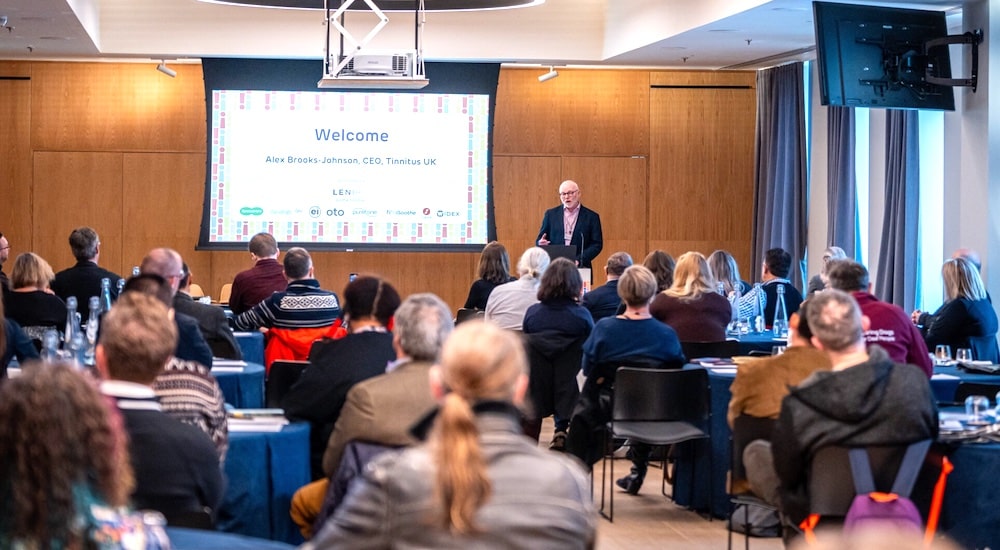Why I chose a cochlear implant for single-sided deafness and what I've learned along the way
Hearing loss coach and writer, Carly Sygrove, talks us through her recent cochlear implantation experience, explaining why she chose a cochlear implant, how outcomes fared against her expectations, what she has learned from this adventure, and what advice she has for anyone considering a cochlear implant solution.
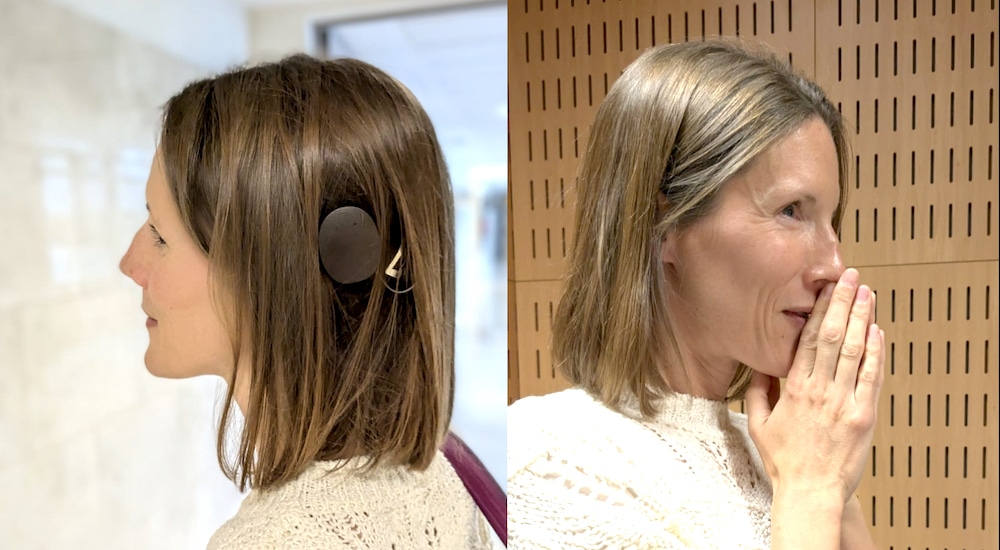
I‘m seven weeks post-activation of my cochlear implant (CI). Eight years ago, I lost hearing in my left ear due to sudden hearing loss, while my right ear still has normal hearing. Living in Spain, I’m fortunate to have access to a CI for single-sided deafness-an option not available everywhere. As a hearing loss coach, I’ve always been passionate about supporting others, and now I’m experiencing firsthand what it’s like to live with a CI.
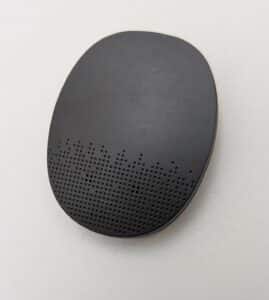
© MED-EL
MED-EL Rondo 3 CI processor of the kind Carly is using.
5 Reasons why I Chose a Cochlear Implant
1. Nothing to lose: With no functional hearing in my left ear, I felt I had nothing to lose and decided to try a CI to see if it could help.
2. Sound localisation: With one hearing ear, I can’t pinpoint sounds, making me feel vulnerable. A CI could improve my hearing and safety, especially when crossing the road or in unfamiliar environments.
3. Social situations: A CI could help me hear better in noisy places like cafes and engage in conversations.
4. Meniere’s disease: Diagnosed with Meniere’s in both ears, the CI offers security in case I lose hearing in my right ear too-my ‘ear insurance’.
5. Brain health: Untreated hearing loss has been linked to a higher risk of dementia. With a family history of Alzheimer’s, I believe a CI could help reduce that risk.
“Right now, voices sound like aliens on helium under layers of mattresses. My goal is to unbury the sounds through ongoing rehab.”

Courtesy of Carly Sygrove
CI processor with safety chain and ear cuff from the Helsinki-based company Deafmetal.
5 Expectations vs. Outcomes
1. Expectation: Voices would sound robotic or mechanical but become more natural over time. Outcome: Right now, voices sound like aliens on helium under layers of mattresses. My goal is to unbury the sounds through ongoing rehab.
2. Expectation: I hoped to hear some sound on activation day. Outcome: I heard tones with every electrode-and more! On day one, I could hear subtle sounds like a mug tapping, cupboard doors closing, and utensils clinking, all feeling surprisingly accurate.
3. Expectation: Hope that my tinnitus might improve after receiving a CI. Outcome: Post-surgery, my tinnitus flared initially but returned to baseline. It’s still early, but if the CI reduces my tinnitus over time, it would be a wonderful bonus!
4. Expectation: Hearing progress varies for everyone. Outcome: I’m making steady progress. After my one-month mapping session, I had 40% word recognition in Spanish!
5. Expectation: Hearing through a CI would be tiring, especially in the early stages. Outcome: Absolutely!

Courtesy of Carly Sygrove
Activation day – hearing sounds for the first time after implantation.
CARLY SYGROVE
Carly is a hearing loss coach, hearing health advocate, writer, and teacher who experienced a profound sudden hearing loss in her left ear in 2016. Since then, she has become a passionate advocate for deaf awareness and developed a love of writing.
“ As someone with first-hand experience of learning to live with these conditions, I have a unique insight into the challenges they bring,” says Carly, who brings to her coaching a useful haul of life experience, including14 years as an Early Years teacher in a variety of settings across the UK, Spain, Thailand and China,
She has a website – Sudden Hearing Loss Support – which was the first website dedicated to providing information and support for people affected by sudden hearing loss.
Website: https://www.carlysygrove.com/
Blog: https://myhearinglossstory.com/
“ My CI journey has provided me with new insights and tools to better support others living with hearing loss. I’m excited to share my experience through mentoring and coaching, helping others confidently navigate their own CI journeys. As a mentor, I provide guidance from firsthand experience; as a coach, I assist people in making informed decisions, setting goals, building confidence, and managing expectations. If you have patients who could benefit from extra support, let’s connect!”
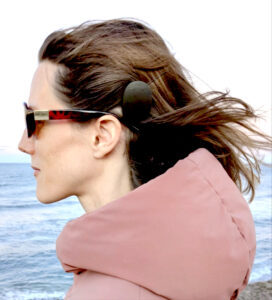
Courtesy of Carly Sygrove
“Prioritise your well-being: Listen to your body, stay connected with others, seek support, and manage stress to stay grounded.”
5 Things I’ve Learned
1. Don’t compare myself to others: Every CI journey is unique. Embrace my own progress, no matter how small the steps may seem.
2. Trust my instincts: Despite advice to keep expectations low, I knew getting a CI was the right choice for me. If I hadn’t researched and connected with others, I might not have gone through with it-but I’m so glad I did.
3. Progress is not linear: Some days, everything sounds clear, but other days-especially when I’m tired-sounds can feel less distinct.
4. Celebrate every milestone: I recognise each step forward-becoming a CI candidate, activation day, and ongoing progress-it keeps me motivated.
5. The emotional impact is huge: Activation day was deeply emotional, and hearing from my deaf ear for the first time in eight years was incredibly moving.
“Ask questions, do your research, and connect with others who have been through it. The more informed you are, the more empowered you’ll feel.”
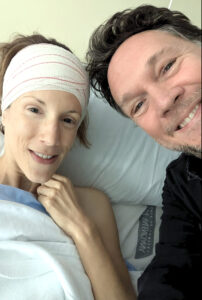
Courtesy of Carly Sygrove
Carly and her partner, post-op. “Take a loved one to appointments: They can help absorb information, support you better, and feel part of the process.”
5 Messages for Anyone Considering a CI
1. Get informed: Ask questions, do your research, and connect with others who have been through it. The more informed you are, the more empowered you’ll feel.
2. Take a loved one to appointments: They can help absorb information, support you better, and feel part of the process.
3. Be ready to work at it: Hearing through a CI requires ongoing effort. It takes work, but the rewards are worth it.
4. Stay positive: You might not hear clearly right away but be patient. Focus on why you’re doing this and remember that every step forward counts.
5. Prioritise your well-being: Listen to your body, stay connected with others, seek support, and manage stress to stay grounded.


